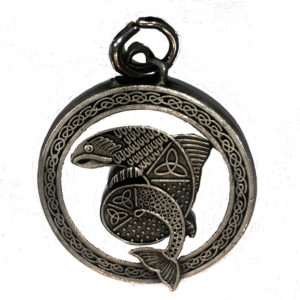Fáilte (Welcome) › Forums › General Discussion (Irish and English) › Pronunciation of some words/phrases
- This topic has 1 reply, 1 voice, and was last updated 7 years, 6 months ago by
Labhrás.
-
AuthorPosts
-
October 7, 2016 at 11:11 am #36926
Ashurbanipal
ParticipantHello,
I was wondering if anybody could tell me how these would be pronounced in Munster Irish? Feel free to use IPA transcription. I have written what I think should be correct, but please point out any errors!
ana-thirim /anÉ™-hr’im’/ (slender
seems like a difficult cluster to pronounce
ana-shalach /anə-hlɑx/
na clanna /nə klɑ:nə/ (not sure about the long vowel here?)
an théad /É™n hi:ad/ – would /h/ be phonetically [ç] here?
an deoch /É™n jÉ”x/ – would /j/ have some friction i.e. [Ê]?Plurals in -eanna:
áit – áiteanna /É‘:t’É™nÉ™/ – is it always /É™nÉ™/?Why is ‘og’ in fuinneog long /fɪŋ’o:g/?
Also, would a Munster speaker be more likely to use ‘tá na…’ or ‘táid na…’ (with plural agreement on the verb)?
Thanks!
October 9, 2016 at 12:53 pm #45997Labhrás
ParticipantI can’t tell much about Munster Irish. Only a few general remarks:
I was wondering if anybody could tell me how these would be pronounced in Munster Irish? Feel free to use IPA transcription. I have written what I think should be correct, but please point out any errors!
ana-thirim /anÉ™-hr’im’/ (slender
seems like a difficult cluster to pronounce
ana-shalach /anə-hlɑx/
na clanna /nə klɑ:nə/ (not sure about the long vowel here?)No long vowel if vowels are added (and so -nn- at the onset of the next syllable)
This is a general principle in Irish regarding tense sonorants, i.e. ll, nn, rr, m, ng.
clann (long vowel) /klɑ:n/
clanna (short vowel) /klanÉ™/an théad /É™n hi:ad/ – would /h/ be phonetically [ç] here?
an deoch /É™n jÉ”x/ – would /j/ have some friction i.e. [Ê]?No [j] or [Ê] at all.
[j]/[ Ê] is slender lenited dh/gh.
Slender d is [d] in Munster (a simple postalveolar [d]) and no affricate as Ulster [dÍ¡Ê’] (English “j”)Why is ‘og’ in fuinneog long /fɪŋ’o:g/?
eo is always long (except in a few words like seo, eochair)
-eog is the same suffix as broad -ógAlso, would a Munster speaker be more likely to use ‘tá na…’ or ‘táid na…’ (with plural agreement on the verb)?
Plural agreement is possible but rare before nouns, even in Munster, certainly not “more likely”.
-
AuthorPosts
- You must be logged in to reply to this topic.
